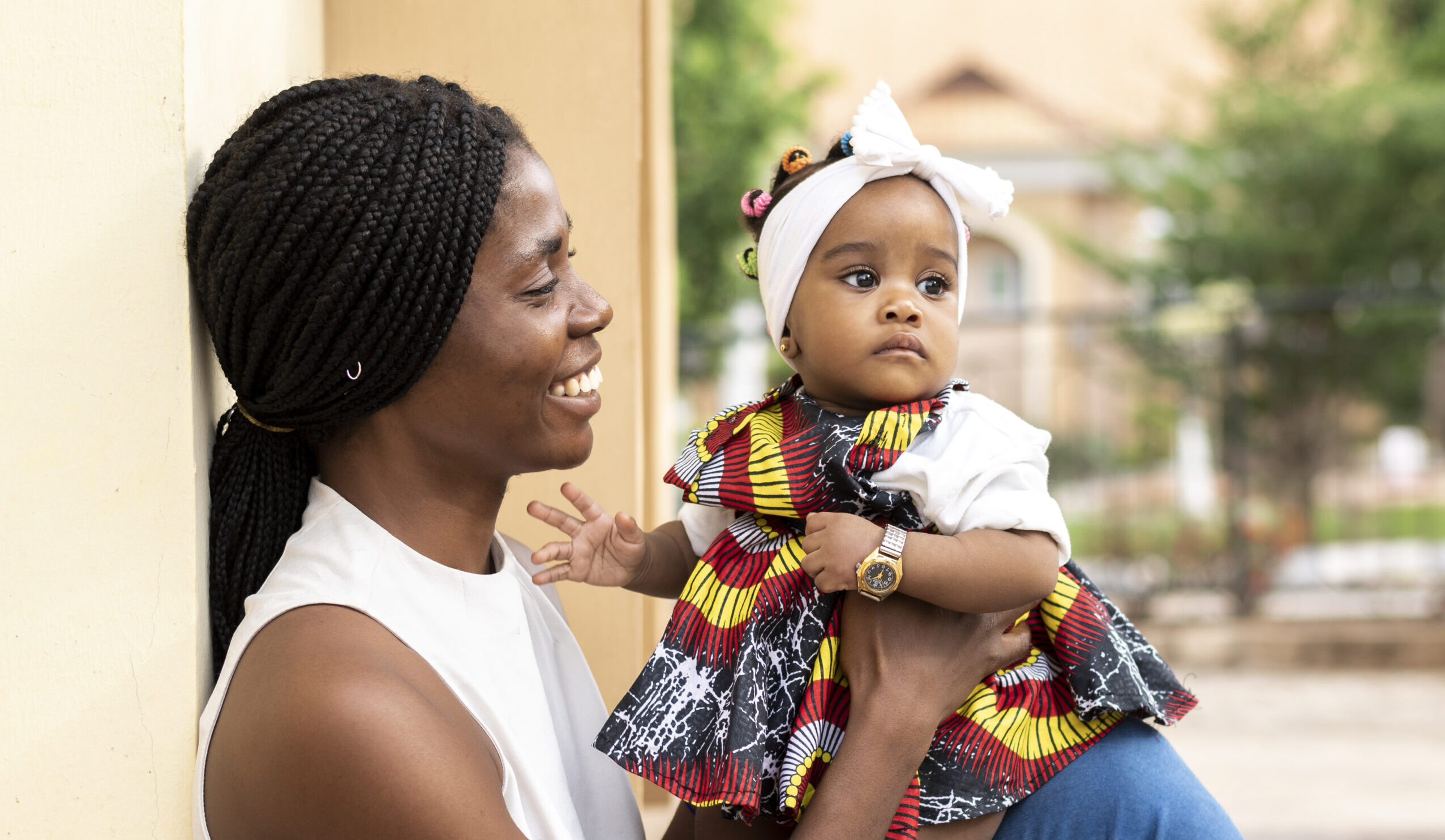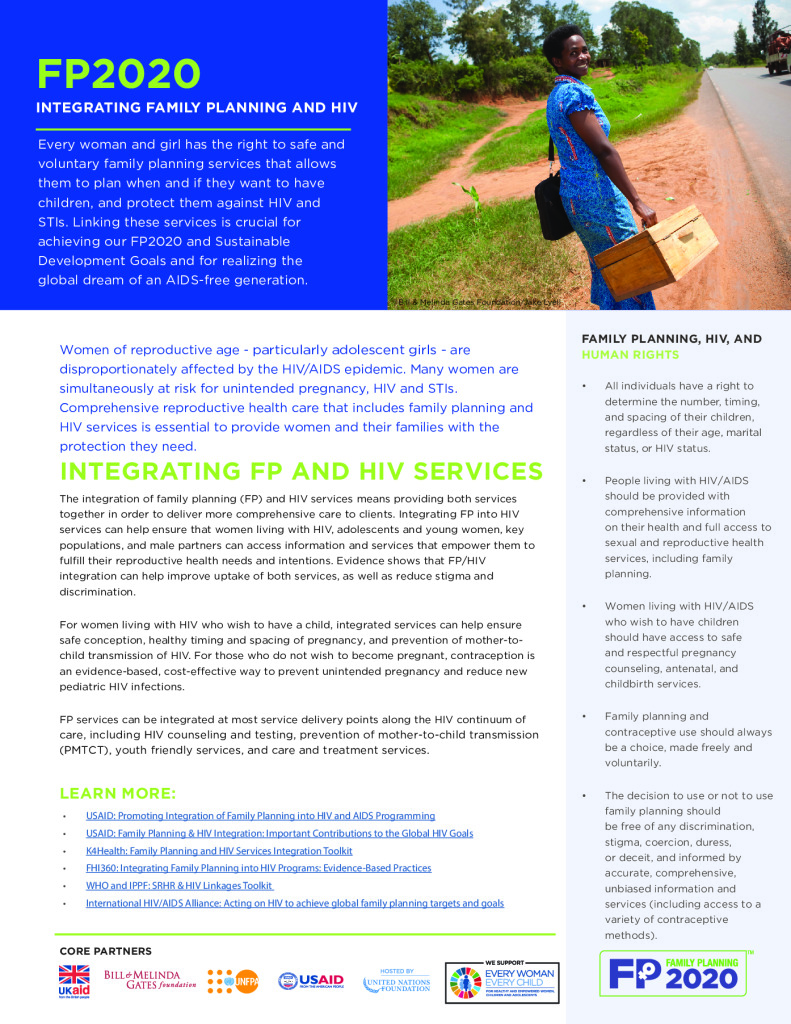
Resources
FP2020 Integrating Family Planning and HIV
Factsheets
FP2030 Resources
Previous

Women and Young Persons with Disabilities: Guideli...
Next

Philippines Private Health Sector Assessment
Topics:
Rights-Based Family Planning
Every woman and girl has the right to safe and voluntary family planning services that allows them to plan when and if they want to have children, and protect them against HIV and STIs. Linking these services is crucial for achieving our FP2020 and Sustainable Development Goals and for realizing the global dream of an AIDS-free generation.
Women of reproductive age are disproportionately affected by the HIV/AIDS epidemic. Many women are simultaneously at risk for both unintended pregnancy and HIV infection. Comprehensive reproductive health care that includes family planning and HIV services is essential to provide women and their families with the protection they need.
The integration of family planning (FP) and HIV services means providing both services together in order to deliver more comprehensive care to clients. Integrating FP into HIV services can help ensure that women living with HIV, adolescents and young women, key populations, and male partners can access information and services that empower them to fulfill their reproductive health needs and intentions. Evidence shows that FP/HIV integration can help improve uptake of both services, as well as reduce stigma and discrimination.
For women living with HIV who wish to have a child, integrated services can help ensure safe conception, healthy timing and spacing of pregnancy, and prevention of mother-tochild transmission of HIV. For those who do not wish to become pregnant, contraception is an evidence-based, cost-effective way to prevent unintended pregnancy and reduce new pediatric HIV infections.
FP services can be integrated at most service delivery points along the HIV continuum of care, including HIV counseling and testing, prevention of mother-to-child transmission (PMTCT), youth friendly services, and care and treatment services.
(This factsheet has been updated from the original version posted in July 2018.)









